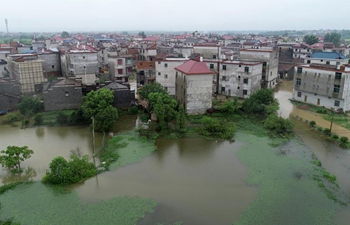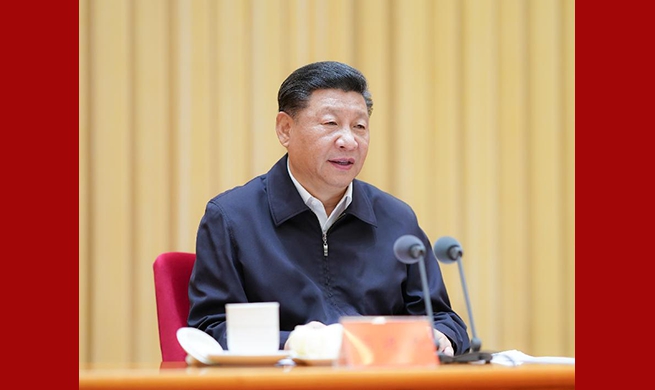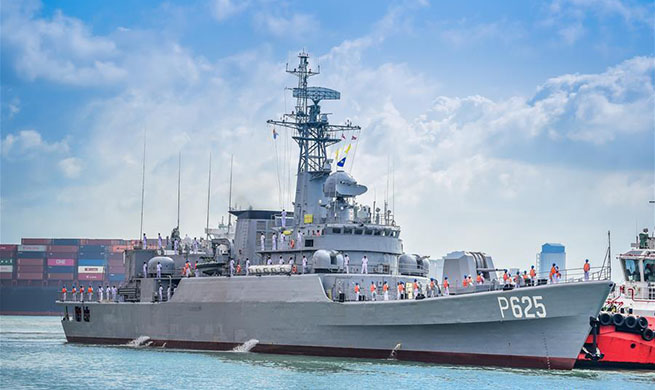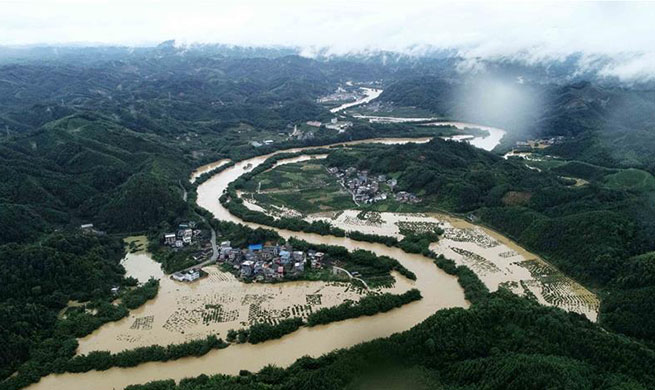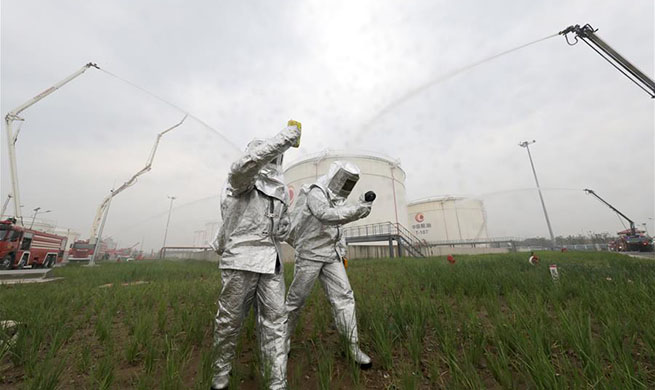CAIRO, July 9 (Xinhua) -- The launch of the operational phase of the African Continental Free Trade Area (AfCFTA) Agreement is an important milestone on the path of integration and economic cooperation on the continent, Egyptian experts said on Tuesday.
The AfCFTA launch occurred on Sunday at the 12th Extraordinary Summit of the African Union (AU) Heads of State and Government in Niamey, capital of Niger.
The African free trade accord was launched on March 21 last year in Kigali, capital of Rwanda, and came into force on May 30, after the deposit of the required minimum of 22 instruments of ratification by AU member states to the AU Commission.
Five more instruments of ratification have since been deposited, including Gabon and the Equatorial Guinea, which deposited theirs on Sunday, bringing the total number of countries that have deposited their AfCFTA ratification to the AU Commission to 27.
Ghana has been confirmed by the heads of state and government as the host of the secretariat of the AfCFTA, prevailing over six other countries that had also expressed interest in hosting it.
"The AfCFTA is an important step in the right direction on the path of integration and trade and economic cooperation in Africa," Hanan Fahmy, head of economic studies unit at the Cairo-based al-Hiwar Center for Political and Media Studies, told Xinhua.
She pointed out that the AfCFTA will contribute to building a united and prosperous Africa and open great prospects for trade between the signatory countries.
The expert added that his move is a lifeline for the continent of Africa, which has been suffering from internal conflicts and border disputes between countries caused by the old colonial divisional maps.
"The agreement will regulate the movement of goods exchange between member states and aims to promote intra-trade, remove customs barriers between countries, and facilitate the movement of goods and investments," she said.
The AfCFTA, among its major aspirations, calls for a single continental market for goods and services, with free movement of business people and investment.
Once fully operational, the free trade accord is projected to boost the level of intra-Africa trade by more than 52 percent by the year 2022, according to the UN Economic Commission for Africa.
According to the AU, the AfCFTA "has laid the foundation" for what could be the world's largest free trade zone by the number of participating countries, covering a population of more than 1.2 billion, which is expected to grow to 2.5 billion by 2050, with a combined gross domestic product of 2.5 trillion U.S. dollars.
For his part, Kareem al-Omda, professor of economy with the Arab Academy for Science Technology and Maritime Transport, said the agreement is an African achievement aimed at integrating the economies of 54 countries, adding that these countries may become a giant economic market for the exchange of goods, services and products.
"The new move will increase the volume and effectiveness of investment, encourage growth rates, create jobs and increase the added value of the continent's wealth," he told Xinhua.
He added that the establishment of the AfCFTA is an important step on the path of economic integration between the countries of the African continent that will help create large partnerships between economic institutions as well as economic entities in Africa that help accelerate the growth of the continent.
He noted that the new AfCFTA will face some challenges that should be overcome, such as the absence of road and rail networks connecting the countries of the continent, adding that the private sector can play a pivotal role in overcoming this problem.
In addition, he said, the continent is suffering from a severe shortage of logistical support, non-tariff barriers, borders and political differences.
Meanwhile, Majid Abu al-Khair, the undersecretary of the African Affairs Committee of the Egyptian House of Representatives, said that the AfCFTA is a major development for the continent.
"The agreement ensures that the continent's resources are used effectively and more safely," Abu al-Khair told Xinhua.
He said that the volume of intra-African trade is low due to transportation, political and borders problems in addition to security risks, stressing that one of the main objectives of the agreement is to remove these obstacles as well as trade fees.





